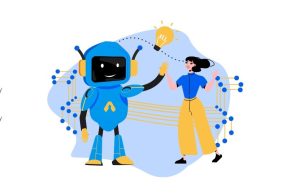In the fast-paced world of recruitment, staying ahead of the curve is crucial for businesses aiming to attract and retain top talent. Enter Artificial Intelligence (AI), a game-changer in the HR landscape, transforming traditional hiring processes and significantly improving efficiency. This blog explores how AI, particularly in Applicant Tracking Systems (ATS), is revolutionizing recruitment, streamlining processes, and helping HR professionals make more informed decisions.
Understanding ATS and Its Challenges:
Applicant Tracking Systems (ATS) have long been a staple in the recruitment process, aiding HR professionals in managing applications, screening candidates, and organizing hiring workflows. However, the sheer volume of resumes and data can overwhelm human capabilities, leading to challenges such as biased decision-making, time-consuming processes, and the risk of overlooking qualified candidates.
Enter AI-Powered ATS:
AI integration into ATS platforms addresses these challenges head-on, providing a range of benefits for HR professionals and organizations. Here’s a closer look at how AI is reshaping recruitment:
- Efficient Resume Screening:
AI algorithms excel at sifting through large datasets, making the resume screening process more efficient and accurate. By analyzing keywords, skills, and relevant experience, AI-powered ATS systems quickly identify qualified candidates, reducing the time and effort required for manual screening.
- Enhanced Candidate Matching:
AI algorithms go beyond basic keyword matching. They analyze contextual information, such as work history and job descriptions, to provide more accurate candidate matches. This ensures that recruiters are presented with candidates whose skills and experiences align closely with the job requirements.

- Minimizing Bias:
One of the significant challenges in traditional recruitment is unconscious bias. AI helps mitigate this by focusing on objective criteria, ensuring a fair and unbiased evaluation of candidates. This fosters diversity and inclusion within the workplace.
- Personalized Candidate Experience:
AI enables the creation of personalized experiences for candidates. Chatbots powered by AI can engage with applicants, providing real-time updates on their application status, answering queries, and guiding them through the recruitment process. This not only improves candidate satisfaction but also enhances the employer brand.

- Predictive Analytics for Hiring Success:
AI leverages predictive analytics to analyze historical data and identify patterns related to successful hires. This assists HR professionals in making data-driven decisions, predicting candidate success, and ultimately improving the overall quality of hires.
- Automated Interviewing:
AI-driven tools, including video interview platforms and virtual assessment tools, streamline the interviewing process. These tools analyze candidate responses, facial expressions, and communication styles to provide valuable insights for recruiters.
- Continuous Learning and Improvement:
AI continuously learns from user interactions and outcomes, refining its algorithms over time. This means that as the system processes more data, it becomes increasingly accurate and effective, adapting to the unique needs of each organization.
The integration of AI in recruitment, especially within ATS platforms, marks a paradigm shift in how HR professionals approach talent acquisition. From efficient resume screening to minimizing bias and enhancing the overall candidate experience, AI-powered solutions are proving indispensable in the competitive world of hiring.

As businesses strive to build diverse and high-performing teams, leveraging AI in recruitment becomes not just a competitive advantage but a necessity. Embracing these technological advancements empowers HR professionals to focus on strategic decision-making, fostering a more agile and responsive hiring process. As AI continues to evolve, its role in recruitment will undoubtedly become even more integral, shaping the future of HR in the digital age.


